Ambush in Dallas: What Would MLK Say?
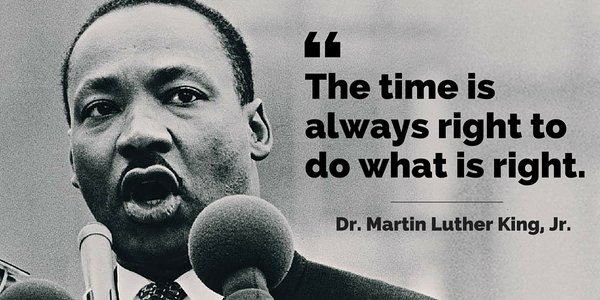
What do you think Dr. Martin Luther King, Jr. (MLK) would say today -- if he were still alive -- about race relations in America following the tragic assassination of five white police officers in Dallas by a deranged black gunman?
To appropriately answer this question it's important to consider the larger context of civil rights, social justice and economic issues of the 21st century which continue to profoundly impact African-Americans and all Americans. Six vexing issues to contemplate include -- but are not limited to -- the following:
1) Race & Law Enforcement
2) Growing Income Inequality
3) Access to Quality Education
4) Employment Discrimination
5) Hidden Societal Bias
6) Voting Rights
1) Race & Law Enforcement
What would MLK say today regarding racial tensions between law enforcement and citizens of color, especially young black men?
- Would Dr. King castigate and rally against racial profiling and other alleged discriminatory police tactics which disproportionately affect citizens of color?
- Would MLK condone or encourage blacks to riot, loot and burn down community small businesses following racial incidents with police?
- Would MLK ever advocate for the murder of white law enforcement officials?
There's no doubt in my mind that Dr. King would have unequivocally condemned the murder of white Dallas police officers in the strongest language possible.
Nonetheless, numerous studies and data show that black men are arrested, convicted and imprisoned at a much higher rate than whites and other groups. This is especially applicable to young black men in urban areas.
Some argue this is due to a history of systemic racial bias in the nation’s law enforcement system, which disproportionately affects African-Americans as a whole. However, others say the reason for this glaring disparity is because black men are the ones who perpetrate the most crime and should be held accountable for their actions under the law.
Regardless, racism is always reprehensible. This is true whether it's perpetrated by white police against black citizens, or by frustrated black citizens who believe all white police officers are racist (as opposed to only a few so-called "bad apples").
Despite which side you're on, every American deserves -- and is entitled to -- equal justice under the law, which is the bedrock of a free and democratic society.
But what happens when "justice delayed is justice denied"? MLK proved that freedom of expression, peaceful assembly and civil disobedience pays dividends in terms of racial justice. This is a civil rights lesson more young people need to learn regardless of their race.
When racial incidents erupt between law enforcement and African-Americans (Ferguson, Staten Island, Baltimore, Baton Rouge, Dallas, etc.), the police usually assert they are merely doing their jobs. On the other hand, blacks often contend they are unfairly targeted by police through racial profiling and other harsh law enforcement tactics.
So which side is right?
“Nonviolence is a powerful and just weapon which cuts without wounding and ennobles the man who wields it. It is a sword that heals.” -- MLK
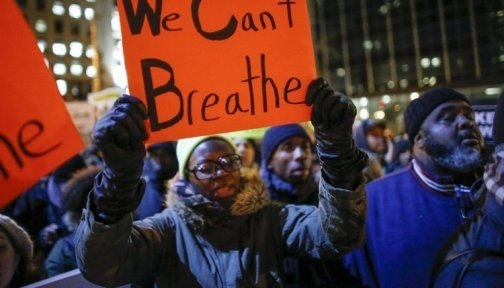
2) Growing Income Inequality
What would Dr. King have thought about socioeconomic progress for African-Americans, or lack thereof, under the nation’s first black President?
For example, it doesn’t appear the USA has become a post-racial society, as many had hoped it would after the 2008 presidential election. Additionally, some leading black academics and influencers, such as best-selling author and popular PBS-TV host Tavis Smiley, have pointed out that blacks are no better off economically today than when President Obama assumed office.
- "Sadly, and it pains me to say this, over the last decade black folk, in the era of Obama have lost ground in every major economic category. Not one, two or three [categories], but every major economic category, black Americans have lost ground."
- "We've been so caught up in the symbolism of the Obama presidency, we haven't pressed as hard as we should on the substance of this presidency. Black people and black leaders have been too deferential to this president."
- $35,398 — The annual median income of black households in 2014, compared with the nation at $53,657.
- 28.6% — The percentage of civilian employed blacks 16 and over who worked in management, business, science and arts occupations, while 36.9% of the total civilian employed population worked in these occupations.
- 26.2% — Poverty rate in 2014 for blacks, while nationally it was only 14.8% (or nearly half).
What would MLK have thought about continued income inequality under two terms of America's first black President?
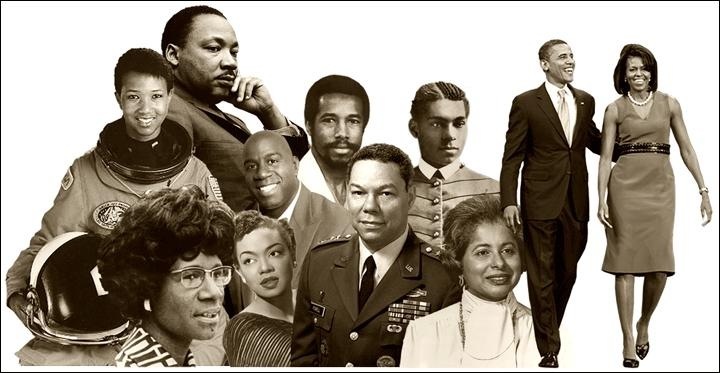
3) Access to Quality Education
The U.S. public school system is badly broken and failing America’s youth, especially in urban areas. This disproportionately hurts and holds back black youth from reaching their full potential.
Such conspicuous racial disparities are based on numerous factors, some of which include low test scores, low graduation rates and alleged discriminatory discipline against students of color (compared to their white counterparts).
Additionally, despite decades of affirmative action in education the rate of black youth attending and graduating from college is still disproportionately low compared to whites and other groups.
The U.S. Supreme Court recently upheld using affirmative action in college admissions as one factor -- among many -- to increase minority representation.
This stark racial gap in higher educational attainment is particularly visible at top-ranked universities and the prestigious Ivy League — again, despite decades of persistent efforts to level the playing field.
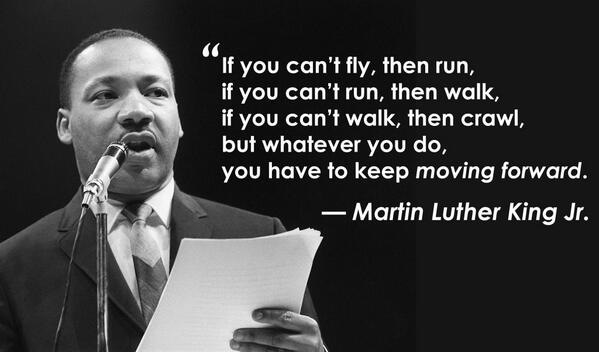
4) Employment Discrimination
Unfortunately, more than a half century after enactment of the groundbreaking Civil Rights Act of 1964, workplace discrimination appears to continue unabated. This is evidenced, among other things, by the sheer number of race discrimination complaints filed against private sector employers at the national, state and local levels.
Although the overwhelming majority of race discrimination allegations are made by black employees and applicants, the percentage of cases filed by whites has been steadily increasing, based on federal government data.
Moreover, is affirmative action in employment still needed for African-Americans to reach the C-Suite and beyond? Keep in mind that affirmative action is voluntary under the law for private sector employers — unless otherwise mandated by a court — and the use of racial quotas is illegal.
Still, there continues to be a glaring lack of black CEOs, board members and senior executives of color throughout corporate America -- from Wall Street to Main Street. Moreover, there’s a scarcity of upper-income black professionals in many leading industries compared to other groups, such as the Silicon Valley high-tech sector.
Is this due to discrimination or, as others argue, based on a lack of qualified blacks in the hiring pool for specific job categories?
In today’s increasingly diverse society, young people who aspire to succeed professionally and climb the corporate ladder need more professional role models and mentors. However, too often there’s little room for advancement to leadership and management positions for employees of color.
One way to address this is through more persistent and widespread mentoring of young people of color, particularly disadvantaged youth, by business and community leaders — including whites.
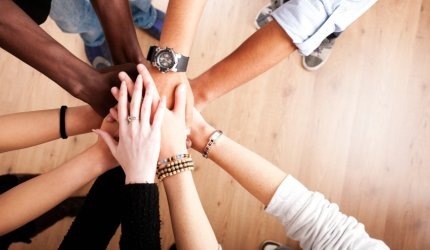
5) Hidden Societal Bias
The undercurrent of societal bias against people of color is deeply rooted in an ugly history of racism in America. This remains an unfortunate fact of American life dating back to slavery and the Civil War.
The scourge of bias and bigotry still exists, whether it’s blatant or subtle, explicit or implicit, intentional or unconscious. But it appears that a good amount of bias lies beneath the surface in modern times.
Societal bias can be harder to prove when it’s more subtle and less overt.
Further, some observers note that discrimination based on color still exists within the African-American community itself. This is reportedly due to some lighter skinned blacks being scorned by some darker skinned blacks who equate lighter skin color with preferential treatment by whites.
Such instances of color discrimination within the black community are likewise said to have originated during America's ugly history of slavery. For example, history tells us that the hue of a black person's skin usually determined whether they would work inside the master's house (lighter skin) or labor in the fields under much harsher conditions (darker skin).
How might Dr. King have addressed current issues of implicit bias by whites, as well as color discrimination by some African-Americans against each other?
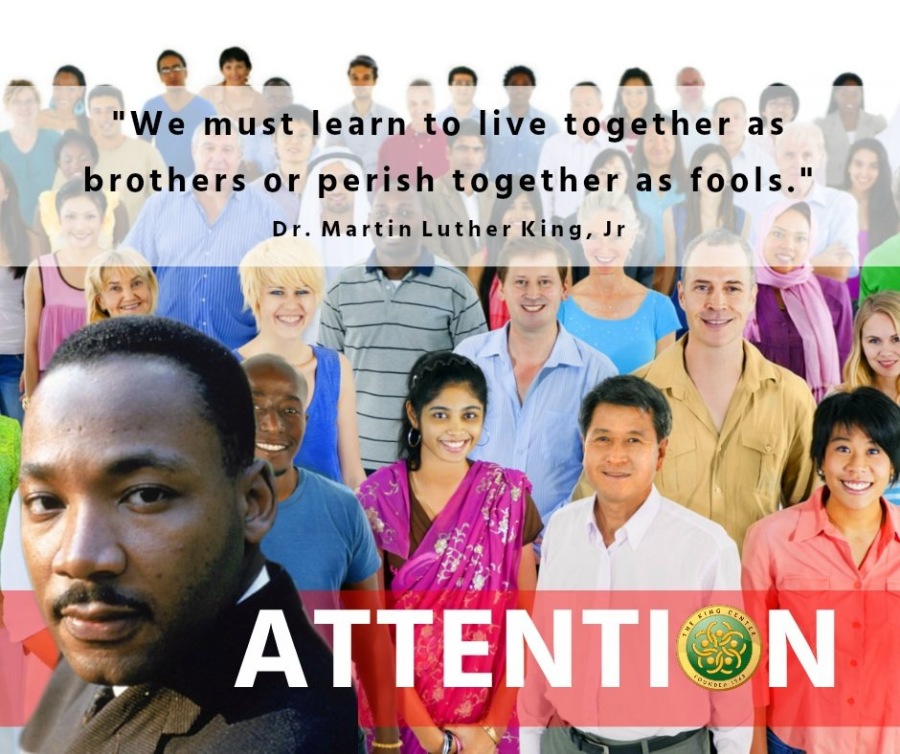
6) Voting Rights
Many civil rights groups argue that voting rights of the black community have been trampled over the years in some parts of the country, most notably the South.
Is this due to alleged discriminatory state and local laws which disenfranchise people of color, or other non-related factors?
There have been questionable court rulings over the scope and viability of the Voting Rights Act, including appropriate voter identification at the ballot box. But images of otherwise eligible black voters waiting in long lines, or being turned away from polling places for frivolous reasons, are simply despicable and anathema to democratic principles.
A good example is North Carolina. The Washington Post editorial board opines on such irregular voting laws in North Carolina, concluding: “As a legal proposition, it’s difficult to prove that a government policy was devised with the deliberate intent of racial discrimination. But make no mistake: North Carolina’s highly restrictive voting rights law, enacted in 2013, is meant to suppress votes, in particular votes cast by minorities.”
What solutions might Dr. King have offered?
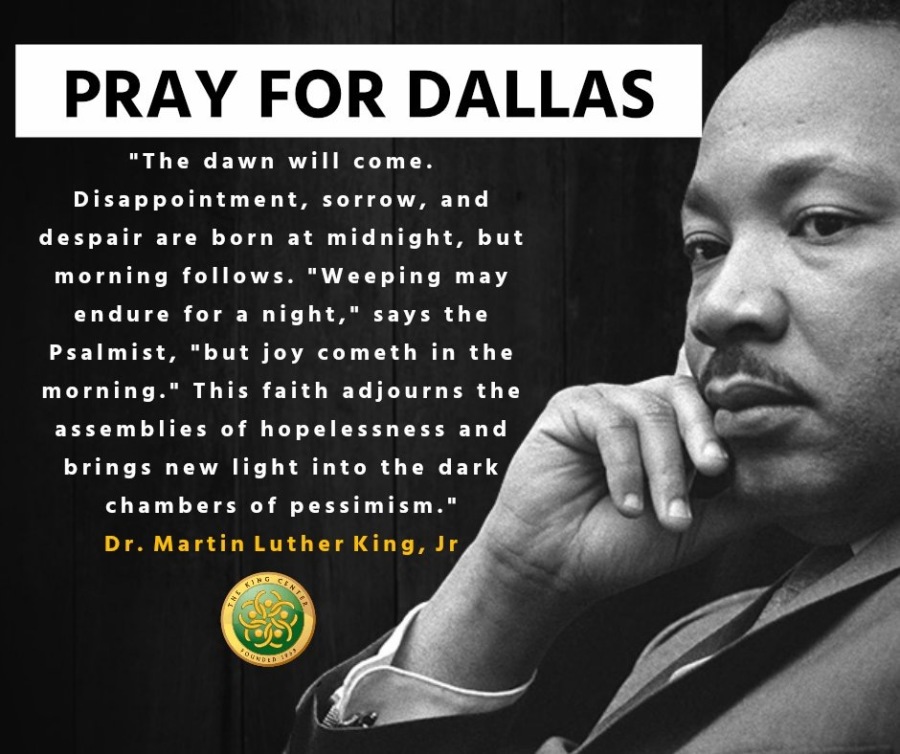
The Big Question
The answers to the aforementioned questions are perplexing, varied and controversial, depending upon whom is asked.While the sweeping civil rights laws of the 1960s obviously did not cure all societal ills, they have certainly had a long-term positive impact on the fabric of America. Nevertheless, it should be evident that there are still too many “glass ceilings” and “sticky floors” and “blocked pipelines” which unfairly hold back talented people of color from advancement in too many aspects of society -- which some whites may take for granted.
Thus, in order for racial healing to be effective, blacks and whites must listen to the concerns of one another rather than talk past each other. Whites and blacks must force themselves to consider issues of race and equality from the viewpoint of the other race -- not just their own. We must all strive to display more kindness, understanding and empathy towards one another -- and we should all sincerely hope and pray for better days ahead.
As Dr. King eloquently stated half a century ago:
“The arc of the moral universe is long, but it bends towards justice.” -- MLK
The big question confronting America today is whether the “arc” Dr. King spoke of has bent enough to ensure equal justice and equal opportunity for all Americans, including citizens of color?
And, if not, what more should be done?
What do YOU think?
NOTE: This post also appears on Medium.com (July 10, 2016)
Also check out:
- Independence Day: Freedom Begets Equality (July 3, 2016)
- Why Workforce Diversity is Simply Good Business (June 28, 2016)
____________________________________________________________________________________
David B. Grinberg is an independent writer and strategic communications advisor based in the Washington, DC-area. He has worked in the White House, U.S. Congress, federal government agencies, and national news media. In addition to beBee, you can find him on Twitter, Medium and LinkedIn.
NOTE: All views and opinions are those of the author only and not official statements or endorsements of any public sector employer, private sector employer, organization or political entity.
Articles from David B. Grinberg
View blog
You can always catch more buzz by blogging on beBee Affinity Social Network. The "Producer" publishi ...
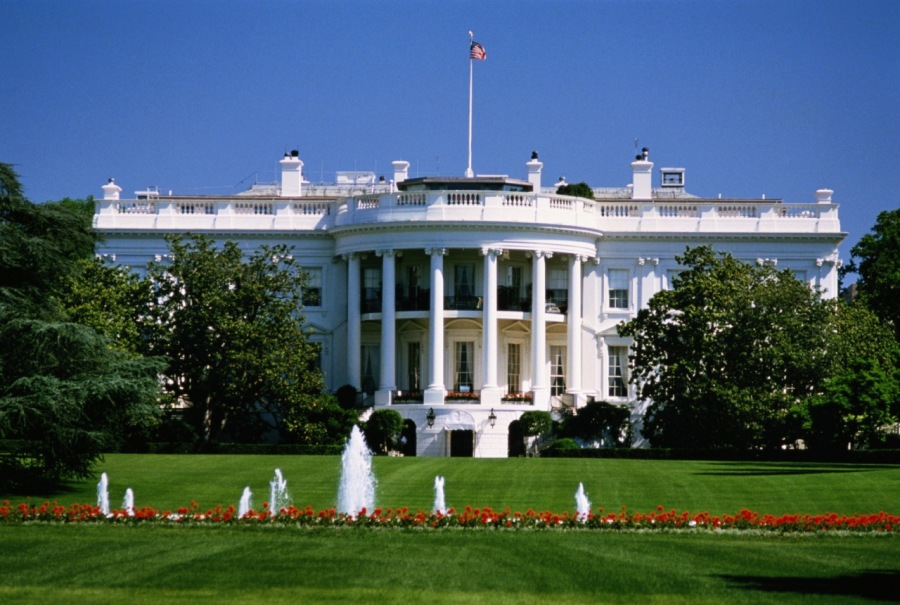
Miguel de Cervantes, the 16th century Spanish novelist, poet and playwright, once said: “Believe the ...
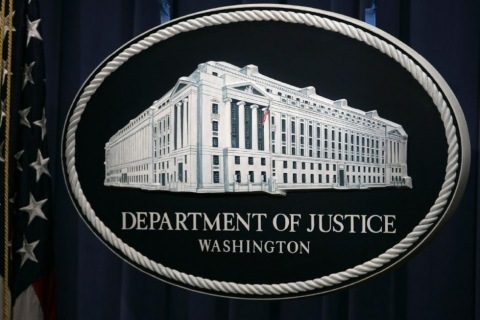
In case you missed it, the month of September marked the 60th anniversary of the Civil Rights Divis ...
Related professionals
You may be interested in these jobs
-

Child and Adolescent Psychiatrist
Found in: Lensa US P 2 C2 - 6 days ago
MedChi, The Maryland State Medical Society Bethlehem, United StatesPosition Overview · LVHN is dedicated to providing a safe and comfortable place for our community to overcome life's challenges. Our team of psychiatrists, psychologists, physician assistants, certified registered nurse practitioners, licensed clinical social workers, psychiatri ...
-
Telephonic Complex Nurse Case Manager
Found in: One Red Cent US C2 - 6 days ago
AmTrust Financial Plainsboro, United States· Telephonic Complex Nurse Case Manager · Job Locations · US-TX-Dallas | US-UT-Salt Lake City | US-CA-Irvine | US-AZ-Scottsdale | US-NY-Latham | US-NJ-Plainsboro | US-FL-Maitland | US-FL-Boca Raton · Requisition ID · Category · Managed Care · Position Type · Regular Full-Time · ...
-

Mechanical Engineer IV
Found in: One Red Cent US C2 - 3 days ago
BuildSubmarines Mobile, United StatesREPORTS TO:Chief Department Engineer or Engineering Lead · SUPERVISES:Engineer III, Engineer II, Engineer I · DUTIES/ RESPONSIBILITIES: · Provides expert judgement and analysis for the design, development and implementation of engineering products/procedures, shipboard systems an ...

Comments
David B. Grinberg
7 years ago #5
David B. Grinberg
7 years ago #4
David B. Grinberg
7 years ago #3
Qamar Ali Khan
7 years ago #2
David B. Grinberg
7 years ago #1